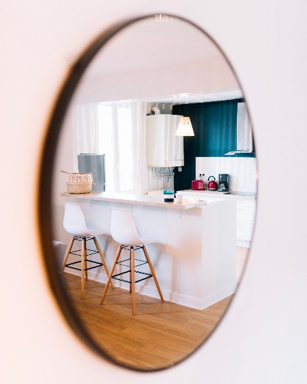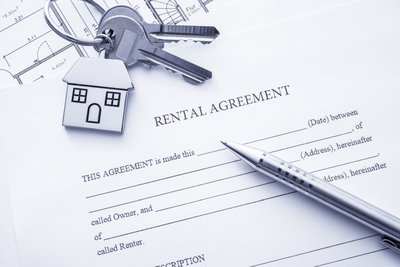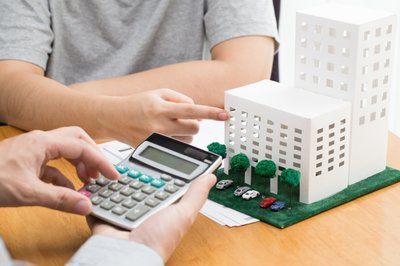29/01/2020 | Buy a property
Buying a house: checklist before the visit
It’s time for a visit to the house you want to buy. What to see, what to check, and what to ask your real estate dealer and owner, if present, to assess general condition of the property and estimate possible works to be done, and how to find out about bills and other fees? Here are some guidelines to help you, as the prospective future owner, carefully view the property and not to be fooled by appearances.
The visit and viewing are just one of the key steps when buying a house. Your needs have already been defined and presented to the real estate agent in order to offer you properties that suit your needs. Your agent will accompany you on the day of the visit; the owners may also be present. This is the time to watch everything and ask questions that will help you buy with no stress involved, and to avoid any unpleasant surprises after finalizing the transaction. Before selling a house, the owner is obligated to conduct mandatory inspections (electricity and CECB – canton building energy performance certificate, which is mandatory in some cantons), as well as recommended inspections for presence of asbestos (if the building was constructed before 1991), PCB, or lead, and related to gas systems. You will receive the results of those inspections. Do not hesitate to ask about details. Also prepare a smartphone with fully charged battery to take photos.
After arrival, view the surroundings
The value of a property also depends on its surroundings. What do the surroundings look like? Can one park in the street (even if there is one or more garage places in the house)? Does the street or road look busy with traffic? This can give you an image of the noise and possible nuisance. Where are the available means of public transport, parks, schools, or stores? If you visit the property at ten o’clock or three in the afternoon, come back about six in the evening. At that time, you will be more aware about the noise and traffic; it will also be a good opportunity to speak with your future neighbours to find out more. Also, find out about the plans for land management in the area. Are there any new buildings planned? If so, where?
Check the condition of the facades and the roof
How old is the building? How long has it been for sale? Check the condition of the walls. Are there any visible cracks or fractures? If so, ask for their cause. Check the roof and the type of roofing surface; ask about the dates of the last maintenance or refurbishment. If any works were performed, you can ask them to show you invoices. Are the works still covered by the guarantee? Ask about the sewerage system.
Entering the house: what to look for and what questions to ask?
– What you principally buy is the square meters of the area, so you must obtain information about the area of the entire house and particular rooms.
– Which walls are the load bearing walls? This is of major importance if you are planning to remove any partition walls to obtain larger rooms.
– What is the condition of beams at the ceiling and the roof truss? If accessible, check the condition of the beams.
– Check the condition of the floors and ceilings. What does the paint on the walls look like? Can one see any traces of mould? Can one see the mould? What does the floor look like?
– What is the orientation of the house; in particular, how are the living rooms, dining rooms, and bedrooms located? The best orientation is the east/west one.
– Obtain information about windows and other openings. Is this insulated glass? What is the condition of the seals? This affects both thermal and acoustic insulation.
– Do not hesitate to ask questions about the heating system and hot water system. How old are they? Find out more about the house insulation and the ventilation system. Ask about the annual cost of energy and review any bills, if available.
– Find out more about the electrical system. Mandatory inspection report you receive should provide you with the required information, but additional caution is advised. Does it conform to the standards? The appearance of the power board should give you an idea about the age and condition. Pay attention to this because redoing the electrical system or adapting it to the standards is expensive.
– Also find out also the condition of the water and sewer systems. Check the taps and valves.
– Ask the agent and/or owner about any servitude, for example the right for neighbours to pass through to reach their property, park their vehicles, or lay pipes on your property. Servitude is a duty of an owner, they may not be evident, but the seller must inform the buyer about them.
– Do not hesitate to ask about the amount of local taxes and levies that refer to the property.
Walk about the rooms and other facilities and carefully examine them
Take your time, this is exactly why you are there. The kitchen, bathrooms, bedrooms, living rooms, etc. Check how many closets and wardrobes there are. Do the drawers open easily? Do the doors open and close easily? What is the view outside the windows?
Even though the visit is not a search, do not hesitate to look into every corner and behind the furniture.
Thinking of rebuilding the house
Ask the real estate agent what can be done. Are there any requirements or aesthetic limitations in the area related to urbanist regulations applicable in the municipality? Is a permit necessary? If so, what permit would that be? What will happen if you wish to transform the garage into an additional living room, add an extension, add a window, or add another floor? If necessary, the expert may estimate the cost of the works.
The area around the property, the garden
Obtain information about the borders of the property. If co-ownership is involved, to border walls constitute a private property? The same refers to fencing. Depending on the layout, ask whether a free-standing cellar or garage form part of the plot sold, and whether the veranda, pool, summerhouse/ tool house (or other extensions) require obtaining a building permit. Walk about the plot. If there are trees, plants, or hedges, check their condition.
Pay attention to details, particularly in the case of old buildings. Let someone accompany you. Two heads are better than one. Gather as much information as possible. Take notes and photos. You can certainly ask to see the house again, and perhaps again.
Use our partner agent network to buy with confidence
Lookmove cooperates with diligent real estate specialists who are well aware with the specificity of their areas. We choose them for their ability to offer top quality services to both buyers and sellers. They know the area, all the services available, and trends in their territories, so that they are able to advise their customers in the best way.
DISCOVER OUR SOLUTIONS TO BUY THE PROPERTY OF YOUR DREAMS
- Aargau properties for sale
- Appenzell Outer Rhodes properties for sale
- Appenzell Innerrhoden properties for sale
- Basel-Landschaft properties for sale
- Basel-City properties for sale
- Bern properties for sale
- Fribourg properties for sale
- Geneva properties for sale
- Glarus properties for sale
- Graubünden properties for sale
- Jura properties for sale
- Lucerne properties for sale
- Neuchâtel properties for sale
- Nidwalden properties for sale
- Obwalden properties for sale
- Saint Gallen properties for sale
- Schaffhausen properties for sale
- Schwyz properties for sale
- Solothurn properties for sale
- Thurgau properties for sale
- Ticino properties for sale
- Uri properties for sale
- Valais properties for sale
- Vaud properties for sale
- Zug properties for sale
- Zurich properties for sale
- Liechtenstein properties for sale
- Zürich properties for sale
- Geneva properties for sale
- Basel properties for sale
- Lausanne properties for sale
- Bern properties for sale
- Winterthur properties for sale
- Lucerne properties for sale
- St. Gallen properties for sale
- Lugano properties for sale
- Biel/Bienne properties for sale
- Thun properties for sale
- Bellinzona properties for sale
- Köniz properties for sale
- Fribourg properties for sale
- La Chaux-de-Fonds properties for sale
- Schaffhausen properties for sale
- Chur properties for sale
- Vernier properties for sale
- Uster properties for sale
- Sion properties for sale
- Neuchâtel properties for sale
- Carouge GE properties for sale
- Emmen properties for sale
- Zug properties for sale
- Yverdon-les-Bains properties for sale
- Dübendorf properties for sale
- Aargau rental properties
- Appenzell Outer Rhodes rental properties
- Appenzell Innerrhoden rental properties
- Basel-Landschaft rental properties
- Basel-City rental properties
- Bern rental properties
- Fribourg rental properties
- Geneva rental properties
- Glarus rental properties
- Graubünden rental properties
- Jura rental properties
- Lucerne rental properties
- Neuchâtel rental properties
- Nidwalden rental properties
- Obwalden rental properties
- Saint Gallen rental properties
- Schaffhausen rental properties
- Schwyz rental properties
- Solothurn rental properties
- Thurgau rental properties
- Ticino rental properties
- Uri rental properties
- Valais rental properties
- Vaud rental properties
- Zug rental properties
- Zurich rental properties
- Liechtenstein rental properties
- Zürich rental properties
- Geneva rental properties
- Basel rental properties
- Lausanne rental properties
- Bern rental properties
- Winterthur rental properties
- Lucerne rental properties
- St. Gallen rental properties
- Lugano rental properties
- Biel/Bienne rental properties
- Thun rental properties
- Bellinzona rental properties
- Köniz rental properties
- Fribourg rental properties
- La Chaux-de-Fonds rental properties
- Schaffhausen rental properties
- Chur rental properties
- Vernier rental properties
- Uster rental properties
- Sion rental properties
- Neuchâtel rental properties
- Carouge GE rental properties
- Emmen rental properties
- Zug rental properties
- Yverdon-les-Bains rental properties
- Dübendorf rental properties





